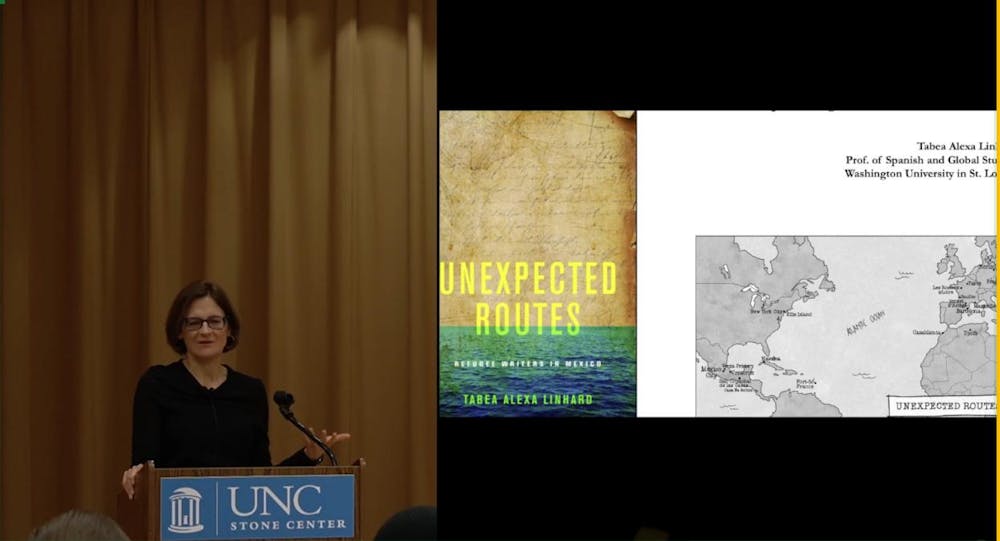The Carolina Center for Jewish Studies hosted Tabea Linhard on Monday for a public lecture about Jewish writers who found refuge in Mexico during the Second World War.
Linhard is the director of global studies and a Spanish professor at Washington University. She has published several books, most recently “Unexpected Routes Refugee Writers in Mexico,” which was the basis of her lecture.
The title was an intentional play on the homophone ‘routes’ and ‘roots’ she said. The book details the lives of six writers who fled from fascism in their countries during the 1930s-40s and their journey to find new homes. Many went to Mexico because it was one of the few countries that allowed people entry at that time.
“I call it unexpected roots, because the book really plays with this notion of ‘routes’ as in a route to a place, but also ‘roots’ as in being rooted,” Linhard said.
As someone who was born in Germany, grew up in Spain, then studied and now teaches in the United States, she said she connected personally with the theme of building new roots.
During the talk on Monday, Linhard honed in on two of the writers, Ruth Rewald and Egon Erwin Kisch, who both made homes in nations new to them.
Rewald was a children’s book author born in Germany and hid in France during the War. Her refuge in Mexico was literary, not literal since she wrote a kid’s book about the country, but never made it there herself. In 1942, she was captured and killed at Auschwitz.
Kisch was a journalist born in 1885 in Austria-Hungary to Jewish parents. He made it to Mexico and lived there until the end of World War II.
During the lecture, Linhard shared excerpts from Kisch’s writing about his home country and new life in Mexico.



